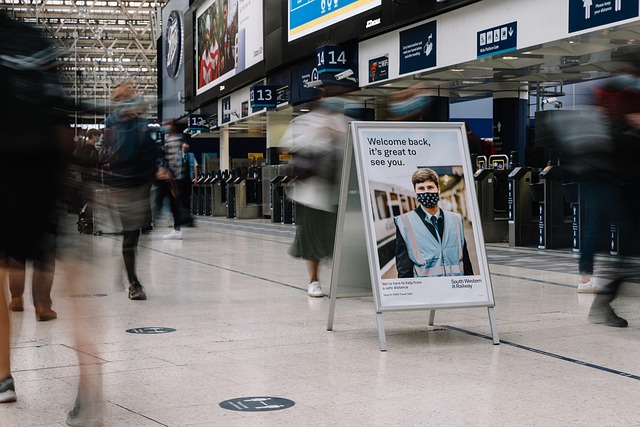AI tools for multi-location restaurant management are transforming the hospitality industry by streamlining operations and enhancing efficiency. These tools predict peak hours, optimize staffing, analyze sales data, and improve customer engagement through personalized recommendations. By automating tasks like inventory and logistics, AI frees up staff time, enabling them to focus on creating memorable dining experiences. Training services equip employees with skills to use these technologies, addressing unique challenges such as centralized kitchen management, inventory control, and staff scheduling across multiple sites. Prioritizing data privacy and security builds trust among staff and patrons, ensuring responsible handling of customer information.
“AI business model training services are transforming the hospitality industry, especially multi-location restaurants facing complex operational challenges. This article explores how AI tools can revolutionize restaurant management, offering insights into their benefits and potential. We delve into ‘Revolutionizing Restaurant Management: AI Tools for Multi-Location Operations’ to uncover efficient strategies. Additionally, we examine ‘The Benefits of AI Implementation in Multi-Site Restaurants’ and provide guidance on ‘Designing Effective AI Business Model Training Services’ tailored to the unique needs of this dynamic industry.”
- Revolutionizing Restaurant Management: AI Tools for Multi-Location Operations
- The Benefits of AI Implementation in Multi-Site Restaurants
- Designing Effective AI Business Model Training Services for the Hospitality Industry
Revolutionizing Restaurant Management: AI Tools for Multi-Location Operations

In today’s digital era, restaurants facing the challenge of managing multiple locations are finding a powerful ally in AI tools for multi-location restaurant management. These innovative solutions are revolutionizing the way eateries operate by streamlining processes and enhancing efficiency across all branches. From centralized inventory management to automated staff scheduling, AI is transforming complex tasks into manageable operations.
AI models can analyze sales data from various locations, predict peak hours, and optimize staffing accordingly, ensuring each restaurant runs smoothly. Moreover, these tools facilitate effective communication between headquarters and individual outlets, enabling quick decision-making and consistent service quality across the board. This level of sophistication not only boosts customer satisfaction but also allows restaurateurs to focus on creating memorable dining experiences while leaving operational intricacies to advanced technology.
The Benefits of AI Implementation in Multi-Site Restaurants

Implementing Artificial Intelligence (AI) in multi-site restaurants offers a multitude of benefits that can streamline operations, enhance customer experience, and boost profitability. AI tools for multi-location restaurant management can optimize staffing schedules by predicting peak hours and demand, ensuring efficient resource allocation. These tools can also analyze sales data to identify trends, allowing restaurants to adjust menus and promotions accordingly.
Moreover, AI enhances customer engagement through personalized recommendations, tailored marketing campaigns, and efficient order management systems. By automating routine tasks like inventory management and supply chain logistics, AI frees up time for restaurant staff to focus on providing better service and fostering a more welcoming environment. This integration of AI in multi-site restaurants paves the way for increased efficiency, improved customer satisfaction, and stronger business growth.
Designing Effective AI Business Model Training Services for the Hospitality Industry

In today’s digital era, the hospitality industry is embracing AI tools for multi-location restaurant management to enhance efficiency and customer experience. Effective AI business model training services play a crucial role in equipping employees with the skills needed to leverage these technologies. These services must be tailored to address unique operational challenges faced by multi-site restaurants, such as centralized kitchen management, inventory control, and staff scheduling across multiple locations.
Designing comprehensive training programs involves providing hands-on experience with AI tools that streamline daily operations. For instance, training sessions could cover how AI algorithms optimize menu pricing based on demand and local market trends, automating tasks like inventory tracking and predictive analytics for better resource allocation. Additionally, focusing on data privacy and security is essential to ensure employees understand the responsible handling of customer information, building trust in AI-driven systems among both staff and patrons.
AI business model training services are transforming the hospitality industry, especially for multi-location restaurants. By leveraging AI tools for efficient operations, these establishments can streamline processes, enhance customer experiences, and gain valuable insights from data analysis. Implementing AI not only offers operational advantages but also enables businesses to stay ahead of the competition. Well-designed training programs focused on AI business models are crucial in ensuring that restaurant managers and staff embrace this technology effectively, ultimately driving success in today’s digital age.
